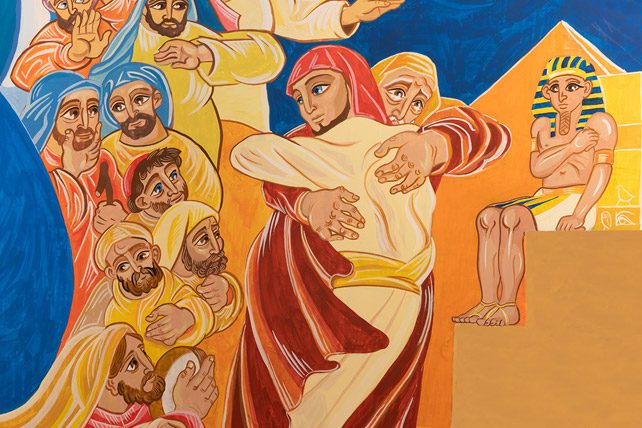I often talk about the importance of forgiveness in my own life, and over the deep hurts I’ve endured. But inevitable questions about biblical forgiveness arise. Does forgiveness imply we ignore issues of justice and restitution? Does forgiveness absolve the guilt of the perpetrator? Does forgiveness imply reconciliation?
It’s important for us to understand what is demanded of us in forgiveness. Forgiveness is not the same thing as reconciliation, which requires two parties willing to come together.
Consider the story of Joseph. For a long time, when I read the narrative in Genesis, I could never understand why Joseph, as prime minister, put his brothers through what often seems a cruel series of tests. If, as he says in Genesis 50:20, he held no bitterness against them, why make them go through the paces of going back and forth from Egypt to Canaan? Why hide the cup in the brother’s bag? Why hold one of the brothers back as collateral? What is going on here?
In this example, I think we see in Joseph the difference between forgiveness—which releases our own souls from bitterness—and reconciliation. Before Joseph could truly be reconciled with his brothers, he had to see that they had shed the petty jealousies and rage that had motivated them to commit their heinous acts of violence in the first place.
Were his brothers remorseful for their treatment? Listen to the way they talk amongst themselves, with Joseph overhearing:
They said to one another, “Surely we are being punished because of our brother. We saw how distressed he was when he pleaded with us for his life, but we would not listen; that’s why this distress has come on us.” Reuben replied, “Didn’t I tell you not to sin against the boy? But you wouldn’t listen! Now we must give an accounting for his blood.” They did not realize that Joseph could understand them, since he was using an interpreter. (Genesis 42:21-23)
Clearly, the guilt they had carried for decades, the dirty secret that had hung over their hearts like a weighted blanket, was now being exposed in the light of day. They understood that God was forcing them to confront their sin and appeal for forgiveness and grace. Here are the seeds of reconciliation.
And yet Joseph had to continue to test them, to see if their remorse would lead to repentance and new patterns. Clearly it did. Instead of being brothers who cared only for their welfare, these men now plead on behalf of their youngest brother Benjamin. These were changed men to whom Joseph could trust his heart.
It’s important for us to understand there are levels of engagement when we’ve been seriously hurt, not all of which are possible to achieve in this life. Forgiveness is the first and most basic. Forgiveness is the act of being released from the bitterness of our pain and entrusting payback and vengeance to the one who fights for us. “Vengeance is mine” God tells us (Deuteronomy 32:25; Romans 12:17-19). James reminds us that the “wrath of man doesn’t bring about the righteousness God desires” (James 1:20).
Forgiveness means we refuse to let that other person live in our heads rent-free. Forgiveness means we refuse to work our hurt into every single conversation. Forgiveness means we don’t let bitterness cloud our judgement. This is why my friend Rich told me I had to forgive. He was telling me this for my own spiritual and physical health.
I’ve seen too many people destroyed by bitterness. And here’s the thing: unforgiveness not only affects our own souls, its acid also splashes onto our families, our friends, and our coworkers. Years ago, I had to make a decision. Would I model forgiveness for my family and for the small church I was called to lead, or would I let bitterness color my life? I’ve been up close and personal with too many leaders—powerful, gifted, brilliant leaders—who never got over their hurts. It hamstrung their leadership, making them fearful, isolated, and untrusting. Then they unwittingly inflicted it on others.
And yet, forgiveness is only the first level of engagement with those who have hurt us. The next level, I believe, is reconciliation. But this is often more complicated. In Joseph’s case, it happened because his brothers also engaged and were willing to embrace repentance and restitution. This is not always possible. Romans 12:18 says “If it is possible, as far as it depends on you, live at peace with everyone.” If it is possible, as far as it depends on you.

